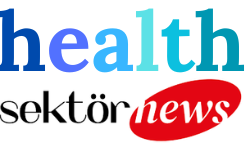
diyet çeşitleri
As people age, their nutritional needs may change, and it’s important to make adjustments to your diet to ensure that you are getting all the nutrients your body needs. Here are some general nutritional advice for middle-aged and older adults:
Eat a balanced diet: Include a variety of foods from all food groups in your meals, including fruits, vegetables, whole grains, lean proteins, and healthy fats. Aim to eat a variety of colors of fruits and vegetables to ensure you get a variety of nutrients.
Limit your intake of saturated and trans fats: These types of fats can increase your risk of heart disease. Choose lean protein sources such as fish, skinless poultry, beans, and legumes.
Reduce your sodium intake: Too much sodium can increase blood pressure, which can increase your risk of heart disease and stroke. Limit processed foods, which are often high in sodium, and season your foods with herbs and spices instead of salt.
Stay hydrated: Drink plenty of water and limit your intake of sugary drinks, which can add extra calories to your diet.
Increase your fiber intake: Fiber is important for digestive health and can also help lower your risk of heart disease. Choose whole grains, fruits, vegetables, beans, and legumes.
Consider taking supplements: Talk to your healthcare provider about whether you need to take supplements such as calcium, vitamin D, or vitamin B12.
Limit alcohol consumption: Too much alcohol can increase your risk of health problems, including liver disease, certain cancers, and heart disease. Men should limit their alcohol intake to two drinks per day, while women should limit their intake to one drink per day.
Remember, it’s never too late to make healthy changes to your diet. Small adjustments can make a big difference in your overall health and well-being.








